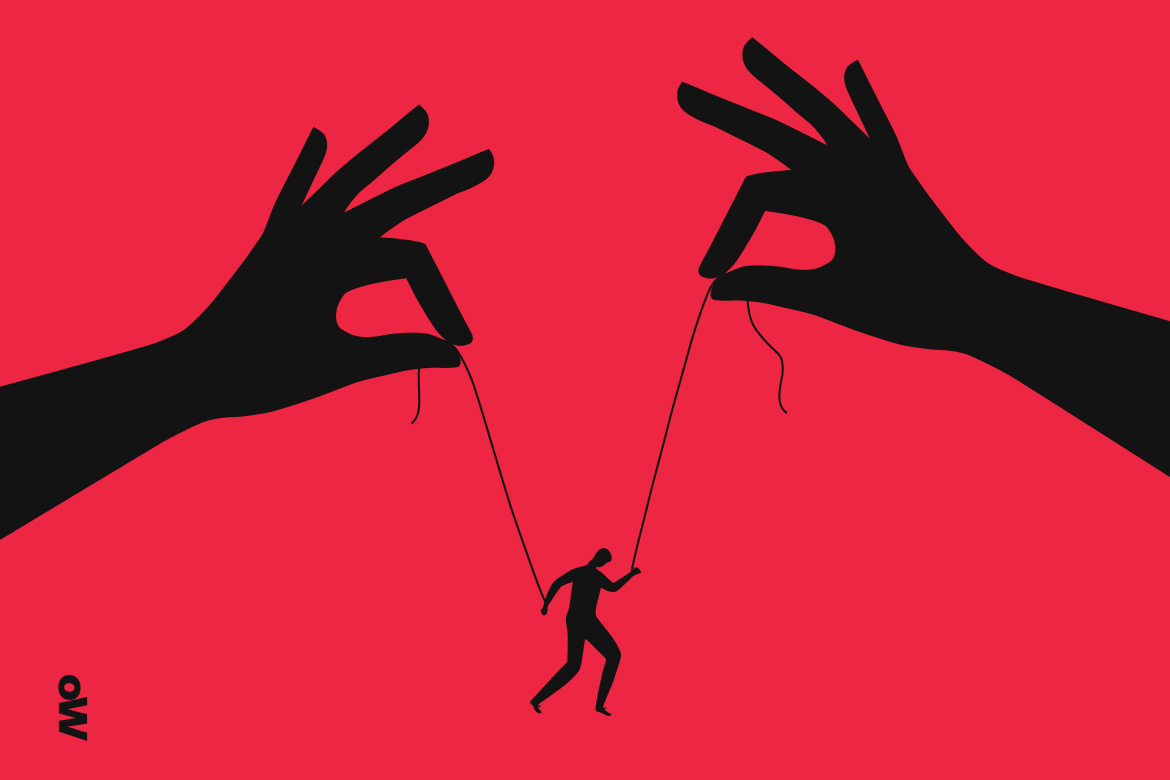Quiz: Am I Being Manipulated In A Relationship?

In fairy tales, the villains always wear black cloaks and terrifying masks. But in real life, a toxic manipulator could be closer than you think. They may be hiding behind the guise of a loving partner, gradually luring you into a swamp of mind games and lies. Don’t let yourself be manipulated! Take our quiz and unveil the true face of your significant other.
What Is Manipulation in a Relationship?
Manipulation is a form of psychological abuse where one partner tries to control the other using various tricks and tactics. It can be emotional blackmail, devaluation, intimidation, or playing on emotions. The manipulator’s goal is to get the desired behavior from their partner and subjugate them to their will.
It’s important to understand that manipulation is not just a one-off incident, but a persistent pattern of behavior. And it can manifest in all sorts of ways, sometimes so veiled that the victim doesn’t even realize they’re being manipulated.
How Can This Quiz Help?
Our “Am I Being Manipulated?” quiz is like a guide through the labyrinth of manipulation. It consists of a series of questions that will help you look at your relationship from a different angle and identify potentially dangerous patterns in your partner’s behavior.
The quiz is built on real-life examples and based on years of experience from psychologists and relationship counselors. It touches on various aspects of the dynamic between partners: from communication and decision-making to personal boundaries and power distribution.
Key Signs of Manipulation
Manipulation in relationships can take many forms, but there are several key “red flags” to watch out for.
Emotional Blackmail
One of the most common manipulative tactics is emotional blackmail or emotional extortion. The manipulator deliberately plays on their partner’s feelings, inducing guilt, pity, or fear. For example, they might say, “If you really loved me, you’d do what I ask” or “I’ll hurt myself if you leave me.”
The goal of such behavior is to coerce the victim into certain actions, make concessions, or frighten them with the prospect of a breakup. The manipulator’s demands may be completely unreasonable, but due to guilt or fear, the partner still goes along with them.
Devaluation and Belittling
Another common tactic is constant criticism and belittling of the partner’s personality. The manipulator may mock their hobbies, career achievements, appearance, skills, or any other aspects. The main goal is to undermine the victim’s self-esteem and strip them of confidence.
A person with low self-esteem is much easier to manipulate. They tend to excuse and tolerate their partner’s toxic behavior because they start to doubt that they deserve better treatment.
Isolation and Control
Another dangerous sign is when a partner strives to separate you from your social circle and establishes strict control over your life. They criticize your friends and relatives, forbid you from interacting with them or spending time together. At the same time, the manipulator tries to keep track of all your movements, demands an account of every action, and controls your expenses and income.
Isolation from the outside world and total control allow the manipulator to deprive you of external support and make you completely dependent on them. In such conditions, it’s extremely difficult for the victim to see the situation from the outside and escape the toxic relationship.
Gaslighting
Gaslighting is one of the most sophisticated and insidious forms of psychological manipulation. Its essence is that the manipulator deliberately makes their partner doubt their memories, sensations, and common sense.
For example, you claim to remember a certain episode from your shared life in a particular way. But the manipulator stubbornly denies it, saying, “No, that’s not how it happened at all,” or “You’re making it up; that couldn’t have happened.” Over time, the victim starts to lose touch with reality and trust in themselves.
Gaslighting can manifest in small ways but eventually take on increasingly threatening forms. Ultimately, the person begins to depend entirely on the manipulator’s assessment of what’s happening because they no longer trust their own feelings and perceptions of reality.
Strategies for Countering Manipulation
Recognizing manipulation is only the first step toward liberation from a toxic relationship. Further decisive action will be required to stop the manipulator’s attempts to control you. Here are some key strategies:
- Establish clear personal boundaries and strictly adhere to them. Explain to your partner which behaviors are unacceptable to you (criticism, insults, threats, etc.) and what consequences will follow if they violate those boundaries.
- Insist on open and honest communication. Directly tell your partner when you notice manipulative behavior from them. It’s possible they don’t even fully realize their behavior themselves.
- Seek external support from friends and relatives. It’s crucial not to become isolated within the confines of a toxic relationship and to have the opportunity to view the situation from the outside.
- If necessary, seek professional psychological help. A specialist can help you restore boundaries, regain self-confidence, and navigate the complex situation.
- If the manipulator categorically refuses to change, the only way out may be to break up. Your mental and physical health must be the priority. Don’t sacrifice it for a toxic relationship.
Remember, you deserve love, respect, and happiness. Take our quiz to better understand your situation. And don’t hesitate to take action to break free from the web of manipulation!
How to Play?
Click the "Start Quiz" button and answer each quiz question honestly. There are no right or wrong answers. You may encounter multiple-choice questions or statements to rate on a scale of agreement. Once you finish the quiz, you'll receive results that provide insight into your personality traits, including strengths and weaknesses. Use this information to increase self-awareness and make positive changes.
How many questions does this quiz have?
15 Questions
How long does it take to complete this quiz?
4 Minutes
Questions Overview
- Rarely
- Sometimes
- Often
- All the time
- No
- Occasionally
- Frequently
- Always
- No
- Sometimes
- Often
- Always
- No
- Occasionally
- Frequently
- Always
- Rarely
- Sometimes
- Often
- Always
- No
- Occasionally
- Frequently
- Always
- Rarely
- Sometimes
- Often
- Always
- Rarely
- Sometimes
- Often
- Always
- No
- Occasionally
- Frequently
- Always
- Rarely
- Sometimes
- Often
- Always
- No
- Occasionally
- Frequently
- Always
- Rarely
- Sometimes
- Often
- Always
- Rarely
- Sometimes
- Often
- Always
- Rarely
- Sometimes
- Often
- Always
- No
- Occasionally
- Frequently
- Always





